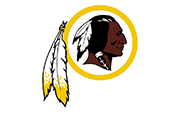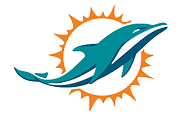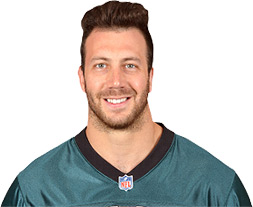Philadelphia versus Phoenix makes for a fascinating comparison. They are close in population size—1,537,058 people in Phoenix and 1,560,297 in Philadelphia. But that is where the similarity ends. Between 1950 and 2014, Philadelphia lost 25 percent of its population. Over the same 64 year period, Phoenix increased in population from 106,818 people to nearly 1.6 million.
This explains much of the data below. “When cities lose population, they lose those people who are most mobile and, on average, most wealthy,” explains Professor Richardson Dilworth of Drexel’s Center for Public Policy. “Thus we see that the 2009-2013 median family income in Phoenix of $47,139 is significantly higher than Philadelphia’s $37,192.”
But population increase tells only part of the story. “Most of Phoenix’s gain has actually come from territorial expansion,” Dilworth explains. “In 1950 when Philadelphia covered 130 square miles, Phoenix covered a mere 17 square miles. In 2010, by contrast, Phoenix covered 516.7 square miles. Philadelphia, of course, has been the same size in terms of square miles since 1854, when it expanded from 2 to 130 square miles.”
The fact that Phoenix has the same size population spread over almost 400 more square miles than Philadelphia explains why more people here bike to work. But, given Phoenix’s meteoric growth over the past half century and our population loss, why have a greater percentage of people reported moving to Philadelphia in the past year than to Phoenix? “First, that only records people moving into the city, not people moving out, so it is not a reflection of net city population loss or gain,” Dilworth responds. “And because of its massive territorial size it’s harder for people to actually leave Phoenix. Take someone who leaves Philadelphia to move to Collingswood or Narberth. The equivalent of both of these suburbs would be well within the city limits in Phoenix.”
The voter turnout data has another interesting backstory. Mayors are very weak in Phoenix; the office is actually part of the city council, but unlike the other council members, is elected at-large. “Phoenix’s mayor, in other words, is sort of the equivalent of someone like Allan Domb,” says Dilworth. They also have non-partisan elections. So they can’t whip up party support, and the fact that mayors are weak means that people care less about who gets elected.
While there are problems in Phoenix, particularly centering on immigration and longtime controversial Maricopa County Sheriff Joe Arpaio, there is a significant culture of innovation in Phoenix. According to Dilworth, thanks to the weak mayor system and nonpartisan elections, Phoenix has a far less political and more professional city government bureaucracy. Arizona Sate University, just outside Phoenix, was ranked by US News and World Report as the most innovative school in the country. By contrast, there was only one university in Philadelphia even included on the list—Drexel University, which was ranked #7. “ASU has been critical to Phoenix’s sustainability policies,” Dilworth says.
Next week, we host Washington.
Results

PhiladelphiaEagles |
|

Arizona (Phoenix)Cardinals |
|
% BA or higher
24.4 |
7 POINTS
Cardinals |
% BA or higher
26.5 |
|
% Below poverty
27.2 |
7 POINTS
Cardinals |
% Below poverty
23.4 |
|
% Bike to work
2.1 |
7 POINTS
Eagles |
% Bike to work
0.7 |
|
% Moved to city in past year
4.6 |
7 POINTS
Eagles |
% Moved to city in past year
3.9 |
|
Violent crime per 1,000 residents
11.0 |
7 POINTS
Cardinals |
Violent crime per 1,000 residents
6.3 |
|
% Volunteer
26.1 |
7 POINTS
Eagles |
% Volunteer
23.1 |
|
% Voted in last mayoral election
25.5 |
7 POINTS
Eagles |
% Voted in last mayoral election
20.81 |
|
Income Inequality Index
.51 |
7 POINTS
Cardinals |
Income Inequality Index
.47 |
|
% of population aged 22 to 34
22.5 |
7 POINTS
Eagles |
% of population aged 22 to 34
20.03 |
|
Final Score
35 |
Philadelphia
Eagles |
Final Score
28 |
Sep. 14 |
21-35
Falcons |

Falcons |
Sep. 20 |
21-42
Cowboys |

Cowboys |
Sep. 27 |
28-35
Jets |

Jets |
Oct. 04 |
14-42
Redskins |

Redskins |
Oct. 11 |
21-42
Saints |

Saints |
Oct. 19 |
28-35
Giants |

Giants |
Oct. 25 |
21-35
Panthers |

Panthers |
Nov. 08 |
21-42
Cowboys |

Cowboys |
Nov. 15 |
56-0
Eagles |

Dolphins |
Nov. 22 |
35-28
Eagles |

Buccaneers |
Nov. 26 |
42-7
Eagles |

Lions |
Dec. 06 |
28-35
Patriots |

Patriots |
Dec. 13 |
42-21
Eagles |

Bills |
Oct. 19 |
35-28
Eagles |

Cardinals |
Dec. 26 |
14-42
Redskins |

Redskins |
Jan. 03 |
35-28
Eagles |

Giants |
Civic Record:
EAGLES |
Wins
5 |
Losses
7 |
Upcoming Games:
Data compiled by Ken Gross, Quantitative Innovations.
All data from the U.S. Census American Community Survey 2011-2013 except: Volunteer rates; crime stats.
Voter turnout rates from Philadelphia’s 2015 general election; Phoenix’s 2015 general election.
More info on the GINI Index of Income Inequality.
* All team logos are property of the NFL and their respective franchises.
Homepage photo: Brian Garfinkel/Philadelphia Eagles


